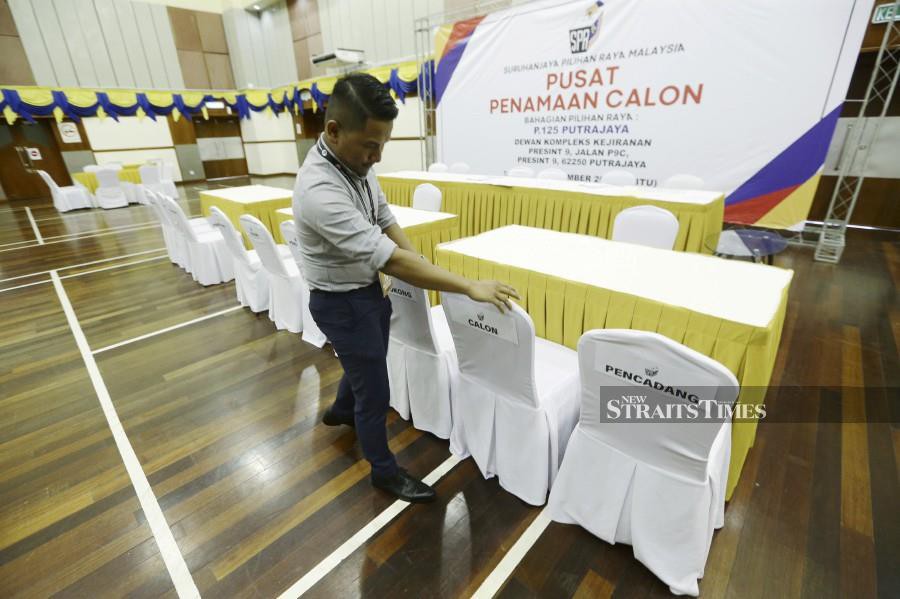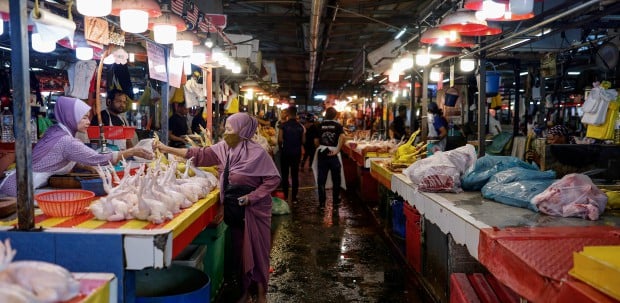With the country geared towards the upcoming general election, perhaps it might seem totally out of the picture to talk about local government.
I have been writing in the past about the importance for Malaysia to hold local elections but perhaps the country could undertake a giant step ahead and embrace deliberative democracy instead.
The fact that citizens are unable to elect their local representatives is a unique anomaly for a democracy like Malaysia. Actually, if you think about it more deeply, it is very worrying that people seem to have become accustomed to this situation.
The way forward, I would call this the mainstream option, is for the parties 'coalitions to include local elections in their manifestos.
A Pakatan Harapan government would, according to their manifesto, push for greater and stronger public participation, promoting a more inclusive form of governance especially for all the major urban centres.
This can be symbolically important given PH's commitment to "work towards representative democracy". As we know the evil is always in the details and we will have to wait for the real plans and their implications if implemented behind these electioneering slogans.
We will still have to wait for Umno and other parties to come up with their own manifestos and it will be interesting to see their ideas to reinvigorate bottom-up participation.
Ideally, this mainstream option would be centered, once the GE15 is over, around a bipartisan consensus among all the parties in setting a legal framework for reinstating the right of citizens to vote for their local councillors and mayors.
If this option materialises, there is no doubt that it would be a good day for the whole country especially the youths if certain provisions are included in supporting them to enter the political arena.
They should not necessarily turn themselves into full-time politicians unless they wish but rather they would act as committed citizens giving some of their time as elected councillors.
This is what happens in many consolidated liberal democracies where you can be a local politician out of your sheer passion and sense of commitment towards the society.
I even imagine the quota especially for young women candidates to run for local offices in a way that inclusion and diversity would be assured and implemented.
Moreover, options should be given for candidates to run as independents. If many would do so, traditional mainstream parties would come to realise they have a problem with young voters and would be incentivised to modernise.
Ultimately this would mean the start of a handover of political power to a new generation with the advantage that local policy making could be one of the best schools to train future political leaders.
This is the best scenario according to the playbook of liberal democracy. Instead, what I am really intrigued by is the possibility that Malaysia can make up for its "unique anomaly" and jump a few steps ahead of others by embracing models of deliberative democracy.
What I mean with deliberative democracy is the way local politics are organised, no more depending on only the will of the elected representatives but instead on the people's ability to come together and deliberate.
It sounds something very revolutionary but actually it is based on a realm of political science that, despite being appropriate by mostly western scholars, is actually based on ancient traditions of deliberations that are still at play in many areas across the non-western world.
It sounds also idealistic bringing people together to decide based on deliberate reasoning, a key feature of this type of people-centered form of policy making.
In practice, persons, with the support of technical experts who present the issues to be decided upon, will enable citizens to listen to different positions and arguments and then try to find a common approach.
As utopistic as it might seem, there have been many examples of deliberative practices and there are many different modalities and forms to shape this approach.
Citizens could gather in forums to learn, listen and then decide. There is no doubt that there are many implications, including the factor time that could impact people's ability to equally participate.
Once again there is a mountain of evidence from experiences from around the world where Malaysia could learn from and then find its own model.
This innovative option of policy making might be hard to be fully digested and understood but we know that liberal democracy, as a model, is broken and it needs some rejuvenation.
Can Malaysia be bold and be a trailblazer in democracy practices? In a pragmatic world, citizens' forums could co-exist with elected councils as long as citizens are really empowered to express their views and co-decide.
With some vision and ambition, we have the possibility to chart Malaysia towards the vanguard of a new type of democracy.
The author writes on civic engagement, youth development, the SDGs, human rights and regional integration in the context of Asia Pacific






